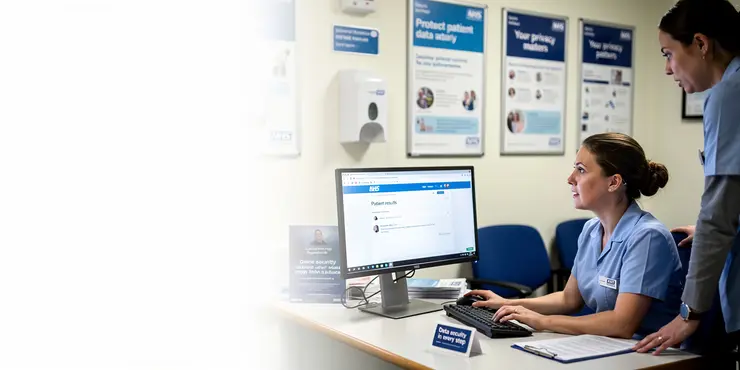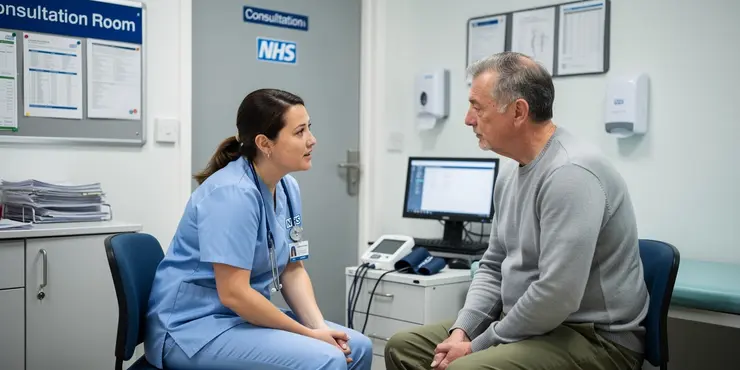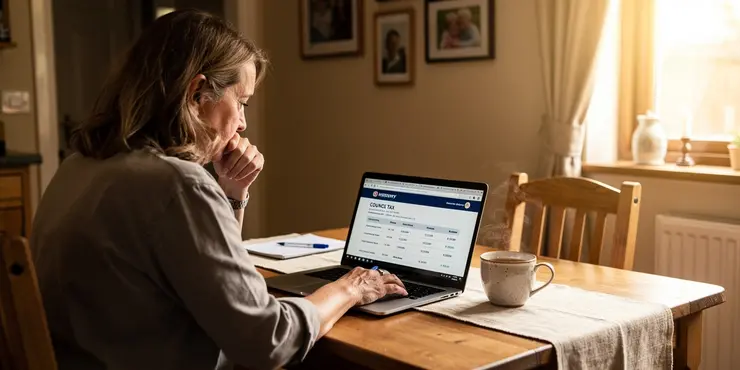
Find Help
More Items From Ergsy search
-

Why am I receiving password reset emails I didn't request?
Relevance: 100%
-

How do I know if my password has been hacked?
Relevance: 59%
-

How can I recover a hacked email account?
Relevance: 54%
-

What are some signs that my email might be hacked?
Relevance: 54%
-

What should I do if I can't access my email account?
Relevance: 53%
-

How do I know if my email has been hacked?
Relevance: 49%
-

Can using the same password across accounts increase the risk of hacking?
Relevance: 48%
-

Why are emails often targeted in data breaches?
Relevance: 47%
-

How can I secure my email after a hack?
Relevance: 47%
-

Should I contact my email provider if I suspect hacking?
Relevance: 45%
-

Why have my email account recovery options changed without my knowledge?
Relevance: 45%
-

Why does my email appear to be sending spam?
Relevance: 45%
-

Can unexpected calendar events be a sign of a hacked email?
Relevance: 43%
-

How are penalty points reset?
Relevance: 43%
-

What should I do if I notice unfamiliar emails in my sent folder?
Relevance: 42%
-

What should I do if I can't log into my account anymore?
Relevance: 41%
-

Will changing my password secure my hacked account?
Relevance: 41%
-

What preventive measures can I take to protect my email from being hacked?
Relevance: 41%
-

What should I do if I suspect my email has been compromised through phishing?
Relevance: 40%
-

Why am I receiving password change requests that I did not initiate?
Relevance: 39%
-

Should I change my passwords regularly?
Relevance: 39%
-

Can antivirus software protect my email from being hacked?
Relevance: 38%
-

What is the risk of my contacts being compromised if my email is hacked?
Relevance: 38%
-

Can enabling two-factor authentication help if my email is hacked?
Relevance: 37%
-

How can I check recent login activity on my email account?
Relevance: 37%
-

How often does the threshold for penalty points reset?
Relevance: 37%
-

Don't Click On That Email (SPAM & SCAMS)
Relevance: 36%
-

Is it safe to use public Wi-Fi to check my email?
Relevance: 36%
-

Why are there login attempts from unfamiliar locations in my email activity?
Relevance: 35%
-

What signs indicate that my email filters may have been tampered with?
Relevance: 35%
-

What role do password managers play in data breach prevention?
Relevance: 33%
-

What signs indicate that my social media account might be hacked?
Relevance: 33%
-

Why am I not receiving expected emails?
Relevance: 31%
-

What steps can I take to prevent future hacks?
Relevance: 28%
-

Are unsolicited emails about weight loss drugs a warning sign?
Relevance: 28%
-

Will HMRC contact me via phone or email regarding my tax refund?
Relevance: 28%
-

Can I get updates on my immigration status via email?
Relevance: 28%
-

How do I know if my social media accounts have been hacked?
Relevance: 27%
-

Can I access my Council Tax payment history online?
Relevance: 27%
-

Why is it important to update my account recovery information?
Relevance: 26%
Introduction
Receiving unexpected password reset emails can be alarming and confusing. If you're in the UK and find yourself in this situation, it's important to understand why this might be happening and what steps you can take to protect yourself. There are several reasons why you might receive such emails, ranging from harmless mistakes to potential security threats.
Common Reasons for Receiving Unrequested Password Reset Emails
One common reason for receiving these emails is a simple mistake by someone else. Typing errors are frequent, and it's possible that another user mistyped their email address, inadvertently directing the password reset request to your inbox. This is generally harmless and can be ignored, though if it happens repeatedly, it might be worth taking further action.
Another possibility is that a cybercriminal is attempting to gain access to your account. By triggering a password reset, they may be trying to learn whether your email address is active or attempting to guess the answers to your security questions. This situation requires immediate attention and should prompt a review of your account's security measures.
Potential Security Concerns
If you suspect an attempted breach, it's crucial to stay vigilant. Cybercriminals use various tactics to obtain personal information, and password reset emails could be part of a phishing scam aimed at tricking you into giving away your credentials. Be especially wary of emails that ask you to click on links or provide personal information, as legitimate reset emails from reputable companies will not request this.
Another potential threat is an ongoing attack known as ‘credential stuffing’, where automated scripts are used to try compromised username and password combinations across multiple websites. If your details were part of a previous data breach, attackers may be testing your credentials on different sites, triggering password resets as part of their process.
Steps to Take If You Receive an Unrequested Password Reset Email
If you're concerned about receiving these emails, there are several steps you can take to protect yourself. First, do not click on any links within suspicious emails. Instead, go directly to the official website of the service in question and check account activity through their platform.
Consider changing your password immediately. Use a strong, unique password or consider a passphrase that combines letters, numbers, and symbols. For added security, enable two-factor authentication on your accounts whenever possible, as this provides an additional layer of protection.
Conclusion
While receiving password reset emails you did not request can be a cause for concern, understanding the reasons behind them and taking appropriate action can help protect your online security. By remaining vigilant and proactive, you can help safeguard your personal information and maintain your digital safety.
Introduction
Getting an email to reset your password when you didn’t ask for it can be scary and confusing. If you live in the UK and this happens to you, it’s important to know why and learn how to keep safe. These emails can happen for several reasons, from simple mistakes to security threats.
Why You Might Get These Emails
Sometimes, you might get these emails because of a simple mistake. Someone might type the wrong email address by accident, sending the password reset request to you. This is usually not a problem and you can ignore it, but if it happens a lot, you might need to do something about it.
Another reason might be that a hacker is trying to get into your account. They might want to check if your email works or try to guess your passwords. This is serious and you should check your account’s security right away.
Security Warnings
If you think someone is trying to hack your account, you need to be careful. Bad people sometimes trick you to get your information. Emails asking you to click links or give personal info might not be safe. Real password reset emails from trusted companies won't ask for this.
Another risk is called ‘credential stuffing’. This is when hackers use old stolen details to try to log in to your accounts on many websites. They might trigger a password reset to test if your info still works.
What to Do If You Get These Emails
If you’re worried about these emails, here’s what you can do to protect yourself. Don’t click on any links in the emails. Go to the official website of the service and check your account there.
You should change your password to something strong and new. Try using a password that mixes letters, numbers, and symbols. For extra security, use two-factor authentication on your accounts. This adds another layer of protection.
Conclusion
Getting password reset emails you didn’t ask for can be worrying. But if you know why they happen and what to do, you can keep your online life safe. Stay alert and take steps to protect your information and keep your accounts secure.
Frequently Asked Questions
Why did I receive a password reset email without requesting it?
Someone may have accidentally tried to reset their password using your email address or it could be a sign of an attempted unauthorized access.
What should I do if I receive a password reset email I didn't request?
Do not click on any links in the email. Check your account for any unauthorized activity and change your password as a precaution.
Could receiving unsolicited password reset emails be a phishing attempt?
Yes, it's possible. Cybercriminals often use fake password reset emails to trick you into revealing your credentials.
How can I verify if a password reset email is legitimate?
Check the sender’s email address, look for typos or suspicious links, and verify with the official website separately if you're unsure.
Is my account at risk if I ignore a password reset email I didn't request?
Ignoring the email itself doesn’t harm your account, but you should monitor account activity and consider changing your password.
Does receiving unsolicited password reset emails mean I've been hacked?
Not necessarily. It could be an error or a targeted attempt. Ensure your accounts are secure by using strong, unique passwords.
What preventive steps can I take to avoid unauthorized password reset attempts?
Enable two-factor authentication on your accounts and keep your email secure with a strong password.
Would changing my password stop further unsolicited reset emails?
Changing your password might help secure your account but won't prevent further reset requests; it's primarily a security measure.
Should I contact customer support if I receive unexpected password reset emails?
Yes, contacting customer support can help verify any suspicious activity on your account.
Is it normal to receive password reset emails frequently?
No, frequent unsolicited password reset emails could indicate someone is repeatedly trying to access your account.
Can someone access my account just by sending a password reset email?
No, they would need access to your email to complete the reset process, but it's a potential security threat.
What are the risks of clicking links in unexpected password reset emails?
The risks include potentially falling victim to phishing scams that capture your login credentials.
How can I protect my accounts from unauthorized password reset requests?
Use strong, unique passwords for each account, enable two-factor authentication, and ensure your email account is secure.
Why am I getting password reset emails for websites I don't use?
Someone may have mistakenly entered your email, or it is being targeted by phishing attacks or hacking attempts.
If I haven't clicked any links, is my account still secure after receiving a reset email?
Yes, your account remains secure if you haven’t interacted with the email. However, monitor for any irregular activity.
Are password reset emails always triggered manually?
Most are user-initiated, but automated attempts by bots can trigger them if someone targets your email.
Can enabling two-factor authentication stop password reset emails I didn’t request?
Two-factor authentication adds a layer of security but won't stop unsolicited reset emails from being sent.
What information should I report to customer support about unsolicited password reset emails?
Provide the sender's email, any suspicious links, and a screenshot of the email if possible.
Could it be a friend accidentally using my email for their account?
Yes, if someone inadvertently used your email for an account, they might trigger a reset unknowingly.
Is there a way to block or prevent password reset emails?
While you can't block them completely, securing your email and accounts reduces the likelihood of this situation.
Why did I get an email to change my password when I didn't ask for it?
Sometimes, you might get an email to change your password even if you didn't ask for it. This can happen for a few reasons. Maybe someone tried to log into your account by mistake, or they typed your email instead of theirs.
If you did not ask to change your password, do not click on any links in the email. It's best to check your account to make sure everything is okay.
You can also use tools like a password manager to keep your passwords safe. Ask someone you trust, like a family member, to help you if you are unsure.
Someone might have typed your email by mistake to change a password, or someone may be trying to get into your account without permission.
What do I do if I get an email about changing my password and I didn't ask for it?
Here is what you can do:
- Don't click anything: Don't click on links or open attachments in the email.
- Check the sender: Look at who sent the email. Does it look real?
- Update your password: Go to the website or app by typing the address yourself. Change your password to be safe.
- Ask for help: If you are unsure, ask a friend or use a tool like a password manager. They can help keep your passwords safe.
Do not click on any links in the email. Look at your account to see if anything is wrong. Change your password, just to be safe.
Could surprise password reset emails be someone trying to trick me?
Yes, it can happen. Bad people on the internet might send fake emails about changing your password. They do this to try and get your secret information.
How can I check if a password reset email is real?
Look at who sent the email. Make sure it looks right. Check for mistakes or strange links. If you are not sure, go to the real website and check.
Will my account be in danger if I don't ask to change my password, but get an email about it?
If you ignore the email, it won't hurt your account. But you should keep an eye on what happens with your account. It’s a good idea to change your password too.
What Do Unwanted Password Reset Emails Mean?
If you get emails asking to change your password and you did not ask for them, it does not always mean someone has hacked your account.
Here are some steps to help you stay safe:
- Check the Email: Look who sent the email. Make sure it is from the real company.
- Do Not Click: Do not click on links in the email if you did not ask to change your password.
- Change Your Password: Use a strong password with numbers, letters, and symbols.
- Use Tools: Try using a password manager to keep track of passwords safely.
This way, you can keep your online accounts safe.
No, it might not be that. It could be a mistake or someone trying to get in. Make sure your accounts are safe by using strong and different passwords for each account.
How can I stop people from trying to change my password without asking?
Some things you can do to keep your password safe:
- Use a strong password with letters, numbers, and symbols.
- Don’t share your password with anyone.
- Change your password often.
- Set up two-step checks like getting a text message when logging in.
- Watch for emails or messages that look strange or unusual.
- Use a password manager to remember your passwords.
Turn on two-factor authentication for your accounts. Use a strong password to keep your email safe.
If I change my password, will I stop getting emails asking to reset it?
Changing your password can help keep your account safe. But it won't stop someone from asking to reset it again. Changing your password makes your account more secure.
Should I call customer support if I get strange emails to reset my password?
If you get an email asking you to change your password and you did not ask for it, it is a good idea to talk to customer support. They can help you know if the email is real or fake.
You can use tools like a phone or computer to reach out to customer support. They will help make sure your information is safe. Do not click on links in strange emails if you are not sure they are safe.
Yes, talking to customer support can help you check if something strange is happening with your account.
Is it okay to get a lot of password reset emails?
No, if you keep getting emails asking to reset your password, it might mean someone is trying to get into your account.
If you're worried, you can:
- Change your password to something strong. Use numbers and symbols.
- Turn on two-step check if your account has it. This makes it safer.
- Tell someone you trust if you feel unsafe.
Can someone get into my account with a password reset email?
No, they can't get into your account just by sending a password reset email.
To reset a password, they need to access your email account too.
Here are some tips to keep your account safe:
- Make sure your email has a strong password.
- Use security questions that only you know.
- Enable two-factor authentication if possible.
No, they can't reset it without your email. But, it's not safe if they try.
What happens if you click on links in surprise emails about changing your password?
If you click on a link in an email you didn't ask for, bad things might happen.
- Your computer might get a virus.
- People might steal your information.
- You might lose your password.
To stay safe, ask someone you trust for help or use a tool that checks if the link is safe.
The risks include being tricked by scams that try to steal your login details.
How can I keep my accounts safe from people trying to change my password without my OK?
Here are some tips to keep your accounts safe:
- Use strong passwords: Choose passwords that are hard to guess. Use numbers and letters.
- Two-step verification: When you log in, get a code sent to your phone.
- Update regularly: Change your passwords every few months.
- Be careful with emails and links: Don’t click on strange emails or links.
- Use password managers: These tools can help you remember and store your passwords safely.
Use strong, different passwords for every account. Turn on two-factor authentication. Make sure your email is safe.
Why am I getting emails about changing my password for websites I don't use?
Sometimes, you might get emails asking you to change your password on websites you don’t visit. This can happen if:
- Someone made a mistake and typed your email address by accident.
- A person is trying to see if they can get into your accounts using your email.
If you get these emails:
- Do not click on any links inside the email.
- Check the email sender to see if it looks real.
- Think about changing your email password to be safer.
Remember to ask an adult for help if you are unsure. Tools like password managers can help you keep your passwords safe and easy to remember.
Someone might have typed your email by mistake. Or they might be trying to trick you or break into your account.
Is my account safe if I got a reset email but didn't click any links?
Did you get an email saying to reset your account password?
If you did not click on any links in the email, your account should be safe.
If you are worried, you can:
- Change your password directly by going to the website or app you use.
- Use a password manager to help you create a strong password.
- Turn on two-step verification for extra safety.
Your account is safe if you did not click on the email. But keep an eye on your account to make sure nothing unusual happens.
Do people always send password reset emails by hand?
Most of the time, people start this. But sometimes, robots called bots can do it too. This can happen if someone tries to use your email without asking.
Will turning on two-factor authentication stop strange password reset emails?
Two-factor authentication (2FA) is a tool that makes your accounts safer. Here is how it helps:
- 2FA adds a second step to log in, like a text message with a code.
- It can stop hackers from taking over your account even if they guess your password.
But, sometimes you might still get password reset emails you did not ask for. Here are some tips to help:
- Check if the emails are real. Look for the company name and logo.
- If unsure, do not click any links in the email. Go to the website directly and log in.
- Use strong passwords. Combine letters, numbers, and symbols.
- Keep 2FA on for extra safety.
- If you get many emails like this, tell the company or website.
Tools like password managers can help you create and remember strong passwords. Stay alert and keep your accounts safe!
Two-factor authentication makes your account safer. But it can't stop unwanted emails that ask you to reset your password.
What should I tell customer support about password reset emails I didn't ask for?
If you get emails about changing your password and didn't ask for them, you should tell customer support.
Here's what to include when you tell them:
- The email address that got the email.
- When you got the email.
- Any strange things in the email.
If you don't understand, ask someone you trust to help.
Please give the sender's email address. Also, share any strange links. If you can, take a picture of the email to show us.
Could my friend be using my email by mistake?
Yes, if someone accidentally used your email for their account, they might try to reset the password without knowing it.
Can I stop password reset emails?
You can't stop all bad emails. But you can make your email and accounts safer. This will help stop most of the bad emails.
Useful Links
This website offers general information and is not a substitute for professional advice.
Always seek guidance from qualified professionals.
If you have any medical concerns or need urgent help, contact a healthcare professional or emergency services immediately.
Some of this content was generated with AI assistance. We’ve done our best to keep it accurate, helpful, and human-friendly.
- Ergsy carfully checks the information in the videos we provide here.
- Videos shown by Youtube after a video has completed, have NOT been reviewed by ERGSY.
- To view, click the arrow in centre of video.
- Most of the videos you find here will have subtitles and/or closed captions available.
- You may need to turn these on, and choose your preferred language.
- Go to the video you'd like to watch.
- If closed captions (CC) are available, settings will be visible on the bottom right of the video player.
- To turn on Captions, click settings .
- To turn off Captions, click settings again.
More Items From Ergsy search
-

Why am I receiving password reset emails I didn't request?
Relevance: 100%
-

How do I know if my password has been hacked?
Relevance: 59%
-

How can I recover a hacked email account?
Relevance: 54%
-

What are some signs that my email might be hacked?
Relevance: 54%
-

What should I do if I can't access my email account?
Relevance: 53%
-

How do I know if my email has been hacked?
Relevance: 49%
-

Can using the same password across accounts increase the risk of hacking?
Relevance: 48%
-

Why are emails often targeted in data breaches?
Relevance: 47%
-

How can I secure my email after a hack?
Relevance: 47%
-

Should I contact my email provider if I suspect hacking?
Relevance: 45%
-

Why have my email account recovery options changed without my knowledge?
Relevance: 45%
-

Why does my email appear to be sending spam?
Relevance: 45%
-

Can unexpected calendar events be a sign of a hacked email?
Relevance: 43%
-

How are penalty points reset?
Relevance: 43%
-

What should I do if I notice unfamiliar emails in my sent folder?
Relevance: 42%
-

What should I do if I can't log into my account anymore?
Relevance: 41%
-

Will changing my password secure my hacked account?
Relevance: 41%
-

What preventive measures can I take to protect my email from being hacked?
Relevance: 41%
-

What should I do if I suspect my email has been compromised through phishing?
Relevance: 40%
-

Why am I receiving password change requests that I did not initiate?
Relevance: 39%
-

Should I change my passwords regularly?
Relevance: 39%
-

Can antivirus software protect my email from being hacked?
Relevance: 38%
-

What is the risk of my contacts being compromised if my email is hacked?
Relevance: 38%
-

Can enabling two-factor authentication help if my email is hacked?
Relevance: 37%
-

How can I check recent login activity on my email account?
Relevance: 37%
-

How often does the threshold for penalty points reset?
Relevance: 37%
-

Don't Click On That Email (SPAM & SCAMS)
Relevance: 36%
-

Is it safe to use public Wi-Fi to check my email?
Relevance: 36%
-

Why are there login attempts from unfamiliar locations in my email activity?
Relevance: 35%
-

What signs indicate that my email filters may have been tampered with?
Relevance: 35%
-

What role do password managers play in data breach prevention?
Relevance: 33%
-

What signs indicate that my social media account might be hacked?
Relevance: 33%
-

Why am I not receiving expected emails?
Relevance: 31%
-

What steps can I take to prevent future hacks?
Relevance: 28%
-

Are unsolicited emails about weight loss drugs a warning sign?
Relevance: 28%
-

Will HMRC contact me via phone or email regarding my tax refund?
Relevance: 28%
-

Can I get updates on my immigration status via email?
Relevance: 28%
-

How do I know if my social media accounts have been hacked?
Relevance: 27%
-

Can I access my Council Tax payment history online?
Relevance: 27%
-

Why is it important to update my account recovery information?
Relevance: 26%


